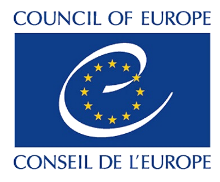Current status
Submitted
Discover more
After a contribution is submitted to BePART Forum, the initiative is marked as “Submitted”; as other partners involved in the initiative submit information from their side, the initiative is marked as “Under review” and goes through the validation process; twice a year, initiatives are validated by the BePART Working Group at the Council of Europe. Successful initiatives are marked as “Validated”. Do you want to learn more – click here
Contributor(s)
First contributor: Järfälla municipality
Summary
The civil cooperation council is a politically initiated council that started in 2021. It should work for good meetings over the boundaries of civil society, for increased cooperation and increased understanding of each other and strengthen the positive force of civil society in terms of integration.
It gathers NGOs, faith-based organization, sport associations and study associations (sv. studieförbund). To participate in the council, the organizations need to apply to certain criteria, they must work in the municipality with a focus on improving integration and preventing segregation. There are currently 26 organizations included in the board and four are waiting for approval to be included.
We have meetings 4-6 times a year where there is an open dialogue between the municipality, politicians and the NGOs and other organizations included in the council.
Administrative level
Local (Municipality)
Year of implementation
2021-2022
Policy area(s)
- Other
Further details
Integration and prevention of segregation
Sorry, no records were found. Please adjust your search criteria and try again.
Sorry, unable to load the Maps API.
Jakobsbergs folkhögskola
Civil society organisation
Contact info
/
Tipology of involvement in the initiative
- Participating with a direct involvement
Svenska med baby
Civil society organisation
Contact info
/
Tipology of involvement in the initiative
- Participating with a direct involvement
Imam Ali Islamic Center
Civil society organisation
Contact info
/
Tipology of involvement in the initiative
- Participating with a direct involvement
Swedish church in Järfälla
Civil society organisation
Contact info
/
Tipology of involvement in the initiative
- Participating with a direct involvement
Föreningen Jasminhuset
Civil society organisation
Contact info
/
Tipology of involvement in the initiative
- Participating with a direct involvement
Ideella integrationsguiden
Civil society organisation
Contact info
/
Tipology of involvement in the initiative
- Participating with a direct involvement
SWAT
Civil society organisation
Contact info
/
Tipology of involvement in the initiative
- Participating with a direct involvement
Järfälla red cross
Civil society organisation
Contact info
/
Tipology of involvement in the initiative
- Participating with a direct involvement
Järfälla ryttarförening
Civil society organisation
Contact info
/
Tipology of involvement in the initiative
- Participating with a direct involvement
S:t Jakob Syriska kyrkan i Järfälla (St: Jakob Syrian church in Järfälla)
Civil society organisation
Contact info
/
Tipology of involvement in the initiative
- Participating with a direct involvement
Järfälla municipality
Public Authority
Contact info
/
Tipology of involvement in the initiative
- Initiating (i.e., advocating for and starting the process
- Organising
- Funding
- Participating with a direct involvement
Level of Participation
- Information
- Dialogue
- Partnership
Discover more
By level of participation we refer to the type of involvement in the decision-making process. The levels are identified by the intensity of participation: going from “information” to “consultation” to ” dialogue” to “partnership”. Do you want to learn more – click here
Developed practice(s)
The council is important for sharing information between actors; there is a dialogue between the municipality and civil society actors about what is being done and what needs to be done. The council is currently planning a partnership with the civil society actors included in the council. All the organizations will be able to apply for funding from the municipality to implement work related to the aims of the council.
Step(s) of the political decision-making process at which the practice was implemented
- Decision-making on policy
Discover more
There are six different steps of the political decision-making process: agenda setting, drafting of policy, decision-making, implementation of policy, monitoring and reformulation of policy. Each step offer opportunities for CSOs and public authorities to interact. Do you want to learn more – click here
How the initiative was implemented
Situation
We have challenges considering integration and segregation in Järfälla. That is why politicians took this initiative. It was confirmed in the city council. Previously we had a smaller council that was for dialogue between different religious organizations that are represented in Järfälla.
Activities performed
4-6 meetings annually and possibility to apply for funding the future
Tools and mechanisms applied
We have criteria documented
Goals of the civil participation initiative
At community level
That the community participates in the work to improve integration and prevent segregation
From Civil society organisation’s perspective
To improve integration and prevent segregation in the municipality
From Public Authority’s Perspective
To improve integration and prevent segregation in the municipality
Results expected prior to the implementation
We are currently working with the council to achieve the goals mentioned above.
Immediate results achieved after implementation
We have not finished the work yet – but hopefully the community will be more included in the work to improve integration and prevent segregation.
Long-term impact
Hopefully the long-term impact will be a sustainable municipality when the work is done where the community is involved in the work to improve integration and prevent segregation.
Practice lessons learnt (obstacles and solutions)
| Agency (i.e., political conditions/power structures) | Obstacles | Politically there was not a consensus |
| Solutions | Had a majority to start the council | |
| Legislative | Obstacles | |
| Solutions | ||
| Administrative | Obstacles | |
| Solutions | ||
| Socio-cultural | Obstacles | The initiative was prioritised to open a dialogue between all ethnicities in the municipalities and it takes time to achieve that goal |
| Solutions | The Municipality and these organisations continue to work with each other to advance integration | |
| Economic | Obstacles | |
| Solutions | Through the budget | |
| Human capital | Obstacles | |
| Solutions | ||
| Other | Obstacles | |
| Solutions |
Further information
/
Self-assessment
The self-assessment presents the opinion of the contributor about on what extent the following principles for Civil Participation have been reflected in the implementation of the initiative/practice/case-study, ranging from 1 (min) to 4 (max) (N/A: not applicable, do not know)
| Openness | 4 |
| Explanation | The council is open to all views and suggestions from its members. |
| Trust | 4 |
| Explanation | We believe that there is mutual trust between the municipality representatives, NGOs and organizations included. The municipality listens to the opinion of all its members. |
| Independence | 4 |
| Explanation | We have no demands on the NGOs and organizations in the council. They are independent and have their own free will. They are welcome to apply for participation in the council if they work with integration and segregation issues in the municipality. |
| Participation | 3 |
| Explanation | The NGOs and organizations participate on many levels. The municipality is now in the process of starting to fund projects implemented by members of the council. The municipality will have some focus areas that the NGOs and organizations must work from. But the plan is to have a dialogue with the NGOs and organization to discuss their ideas and how they can participate in the municipalities work to improve integration and prevent segregation. |
| Transparency | 4 |
| Explanation | We have rules of procedure that we work according to. These are given to the NGOs and organizations when they apply to participate in the council. To participate in the council, the NGOs and organizations must write a formal application letter where they describe how their work complies with the aims of the council. |
| Accessibility | 4 |
| Explanation | That is done and if they have any questions, they can contact the representatives of the municipality. |
| Non-discrimination | 3 |
| Explanation | NGOs and organizations must apply to participate in the council and to be accepted to the council they must comply with certain criteria and work in line with the aims of the council, which is to increase integration and prevent segregation in the municipality. |
| Inclusiveness | 4 |
| Explanation | When the municipality started the work with the council, they informed all NGOs and organizations that work with these issues in the municipality by email and encouraged them to participate. There was also an announcement in the local media. Some organizations that did not apply, but clearly work towards the aim of the council, have been contacted again to make sure that they know about the work of the council and the possibility to join. |
| Accountability | 4 |
| Explanation | Council meetings are held 2-3 times each semester. Minutes are taken and sent to all members, and they are open to the public. The municipality will start funding some projects of the NGOs and organizations later this year and it will be done based on accountability. |
Thank you for wanting to share your experience on the BePART platform!
Learn more about the submission process, or just fill the form below.



